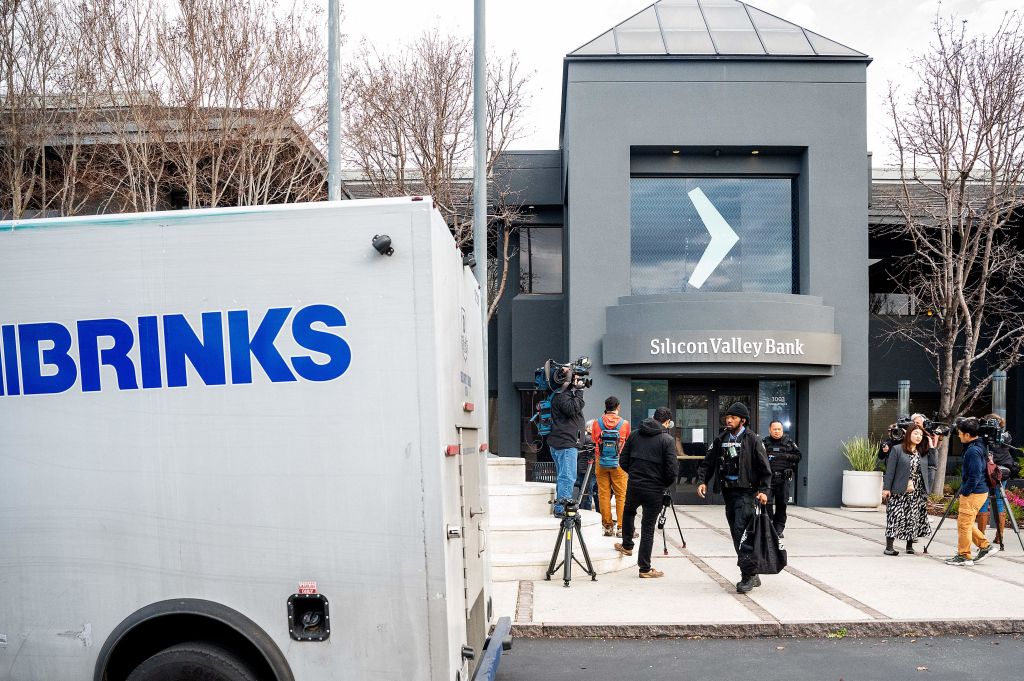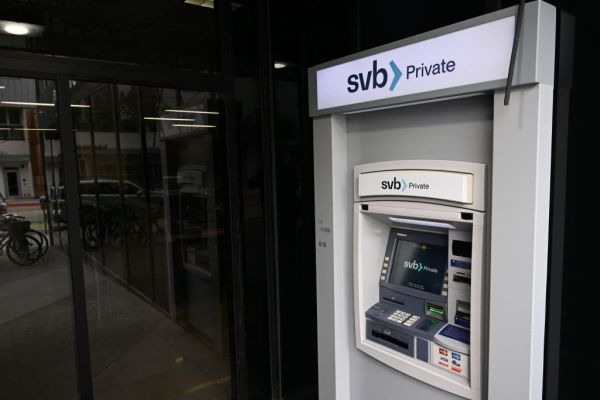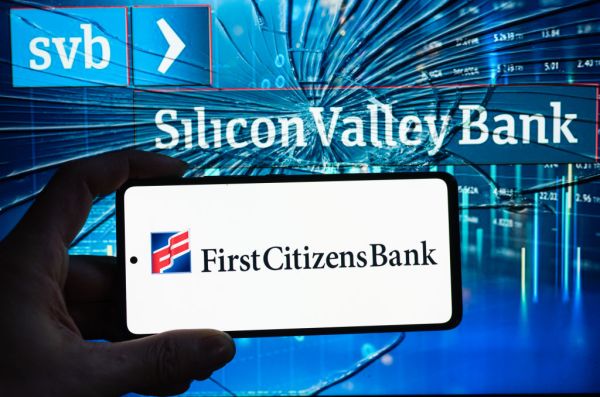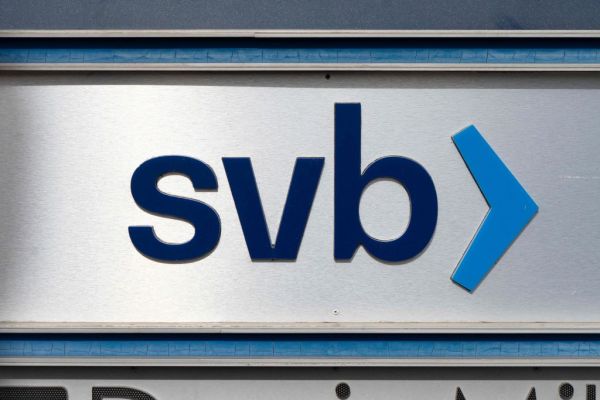On Friday I wrote about one of the many implied warranties of punditry. Today I open with another, that the sage columnist is reasonably learned in all facets of policy and can comment insightfully on them as required.
That warranty will be breached in the matter of Silicon Valley Bank’s failure, I’m afraid.
If you want a detailed account of what happened and somehow missed one of the dozens of explainers published across American media this weekend, The Morning Dispatch will serve you better than I can. If you want something deeper in the weeds I recommend the latest column from Bloomberg’s Matt Levine, one of the few people in America who writes entertainingly about finance.
The basic basics: Over the years SVB piled up a mountain of cash via deposits from tech startups (disclaimer: including The Dispatch) and chose to invest an uncomfortably large share of it in long-term Treasury bonds. A few years ago, that strategy made sense—sort of. Short-term treasuries were paying hardly any interest and the tech industry was flush with money from ambitious venture capitalists, reducing demand for loans. The bank needed someplace to invest the deposits it held. Long-term treasuries, with their higher yield, fit the bill.
Then inflation hit. To cool off the economy the Federal Reserve began raising interest rates, reducing the value of the comparatively lower-yield treasuries held by SVB. (Why SVB didn’t anticipate those rate hikes and reposition after CPI began inching up is something I, the sage columnist, can’t answer.) Venture capital for the tech industry also began to dry up, forcing SVB’s clients to draw off their deposits to make payroll. Suddenly the bank had gobs of money going out the door and a depreciated portfolio of assets to liquidate, if necessary, to cover those withdrawals.
Last week SVB announced that it would sell some of its shares to raise cash. Moody’s reacted by downgrading its credit rating. Fear spread within the tech industry that the bank might not be able to cover withdrawals if depositors panicked and began pulling money out en masse, which, as you’d expect, made depositors panic and begin pulling money out en masse. By Thursday an old-fashioned It’s a Wonderful Life-style bank run was on.
By Friday SVB had collapsed and been taken over by the Federal Deposit Insurance Corporation. Sunday night Janet Yellen and Jerome Powell announced that all depositors will be made whole, including those who had parked more than $250,000 (the maximum typically insured by FDIC) at the bank. They also announced a new initiative to provide loans on favorable terms to other midsized banks that might find themselves caught in a sudden liquidity crunch.
That policy seems to be having the desired effect, per early indications.
First Republic Bank’s shares dropped more than 60 percent early on Monday as jittery investors worried that other regional banks might be undercapitalized. But the great fear, that SVB’s failure would trigger runs on midsized banks across the country, looks to have been averted by quick action from the Fed and Treasury.
What comes next on policy is hard to predict. What comes next politically is easier. The fight over the federal government’s response to SVB will play out along a number of axes, some predictable and others of the “strange bedfellows” variety.
The party in power vs. the party out of power.
This is the easy one. The two parties’ positions on whether depositors at Silicon Valley Bank should have been rescued will be driven largely by the dynamics of who’s in charge and who isn’t.
Biden and (most of) his party will defend the decision to rescue the bank’s clients. If we hadn’t done it, they’ll say, depositors at other regional banks would have withdrawn their funds immediately and fled for the safety of mega-banks like Chase. That would have meant panic, contagion, a cascade of bank failures, and potentially a financial crisis.
The political imperative to prevent such a crisis transcends ideology. If you’re Joe Biden, rescuing SVB’s depositors isn’t a matter of being a good liberal, it’s a matter of preventing a tail-risk apocalypse scenario that would have finished off your 2024 hopes before the campaign has begun. You had to do it. It was a no-brainer.
For Republicans, whose duty as the out-party is to find fault with the in-party, it’s the opposite. Donald Trump will spend months complaining about how irresponsible it was for the feds to throw money at those who chose to do business with a poorly run bank, but if you doubt that he would have responded as president the same way Biden did, consider how he handled the pandemic. There too he was confronted with a calamity whose scale was unclear but potentially massive and whose particulars he knew nothing about. So he opted to be safe rather than sorry by trusting scientific experts like Anthony Fauci on lockdowns and by greenlighting fantastic amounts of federal spending to keep Americans stuck at home afloat.
If SVB had failed on Trump’s watch, he, Powell, and Steve Mnuchin would have chosen to be safe rather than sorry once again, knowing what the electoral consequences of a calamity would have been if they had done nothing. Trump likely would have defended the move by stressing, as Biden has, that it’s not the bank that’s being bailed out, it’s the depositors. The shareholders and managers get squat. And it’s not taxpayers who are funding this bailout, it’s the banks themselves. (Sort of. Banks will pass the cost of that funding onto customers in the form of higher fees, of course.)
On Earth 2, where Trump was reelected in 2020 and America is now trapped in The Darkest Timeline, SVB depositors still got bailed out. Here on Earth 1, the GOP is duty-bound to argue that Team Biden did the wrong thing by rescuing the bank’s clients.
Liberals vs. conservatives.
Ideological preferences will also inform the divide over SVB, of course.
Liberals are traditionally more comfortable with dumping piles of taxpayer cash on problems to “solve” them, even when they’re only debatably “problems.” The left’s list of constituencies who deserve federal bailouts of one sort or another is long, and “tech bros and their cronies” are nowhere near the top. Last night Philip Klein warned conservatives that rescuing SVB’s depositors sets a precedent that will inevitably be used to justify less defensible giveaways by progressives.
Anybody who considers themselves a free-market conservative should be especially concerned about this action. Regardless of the particulars, it will just add to the talking point that when Wall Street or well-connected tech companies are in trouble, the government swoops in to the rescue. And yet lawmakers won’t eliminate student debt, give away free health care, pay for child care, guarantee affordable housing . . . and insert whatever cause you like. If you support socialism for tech companies, don’t be surprised when you get it for everything else.
It’s one thing to set a precedent like this one when the entire financial sector is teetering, Klein notes, as was the case in 2008. But the contagion from SVB’s collapse probably wouldn’t have spread to well-capitalized mega-banks and SVB’s own depositors might have gotten most or all of their money back eventually once the bank’s assets were liquidated. (Of course, for businesses that suddenly lost access to the funds they use to make payroll, much depends on the word “eventually.”) The feds stepping in means bank executives have less incentive to behave responsibly in the aftermath of SVB’s rescue than they did before. If even regional banks are now “too big to fail,” the risk of institutional mismanagement has been thoroughly socialized.
If you’re a free-marketeer who believes in competition, like Nikki Haley, how can you justify that?
Liberals, meanwhile, have begun to steer the conversation about SVB toward more favorable political terrain by focusing on the evils of deregulation. In 2018, with Republicans in charge of both houses of Congress, Trump signed a bill into law that raised the threshold for enhanced regulatory scrutiny of banks under Dodd-Frank. (That bill was also supported by some Democrats.) Previously, any bank with $50 billion in assets was subject to the sort of “stress tests” that mega-banks must pass. Under the new law, only banks with $250 billion would need to comply. That left midtier banks like SVB freer to take investment risks that might potentially cause a liquidity crisis.
Republicans will counter that it wasn’t the 2018 bill signed by Trump that caused SVB’s failure, it was the American Rescue Plan that Biden signed in 2021, igniting inflation and necessitating the interest-rate hikes that brought SVB to ruin.
Turning this into a story about deregulation is a shrewd strategy for Democrats, though, laying the blame for SVB’s failure at the feet of not just the other party but the prior administration. That will complicate the GOP’s attempts to use the bank’s rescue against Biden and his party if we end up with another Biden/Trump race in 2024.
Populists vs. establishmentarians.
Here’s where things get interesting, and where the bedfellows begin to get strange.
News of the SVB don’t-call-it-a-bailout bailout drew harsh criticism from a well-known populist after news broke on Sunday night. But it wasn’t Donald Trump.
The bailout also received praise from a well-known establishmentarian. But it wasn’t Joe Biden.
The SVB fallout will be fertile ground for aficionados of the “horseshoe theory” of American politics. Progressive populists will snarl at seeing another wealthy constituency indemnified for its failures while average Joes who struggle with student debt are stuck in limbo at the Supreme Court. Right-wing populists will bristle at the spectacle of their cultural enemies in Silicon Valley being rescued by like-minded liberals in the Biden administration.
If you’re an establishmentarian, like Biden or Romney, the stability of the U.S. financial system takes precedence over the moral hazards described by Klein. If you’re a populist, like Sanders or Trump, the injustice of rich, well-connected bien-pensants being saved from their own mistakes by the Fed is another example of a corrupt system rewarding those who support it. If you’re an establishmentarian, you worry about tail risks like an uncontrollable financial contagion triggered by SVB’s failure. If you’re a populist, you’re willing to see the proverbial swamp get drained even if the drainage involves some pain to American businesses and midsized banks.
Visit the Wall Street Journal website today and you’ll find a populist argument against the bailout by longshot GOP presidential candidate Vivek Ramaswamy. Visit the left-wing American Prospect and you’ll find something similar from author David Dayen.
Left-wing and right-wing populists will remain broadly aligned as the SVB debate plays out, I think. But the fact that it was regional banks, not the big boys on Wall Street, who stood to suffer the most absent federal intervention adds a complicating quirk here. Joel Pollak, an editor at uber-populist Breitbart, had an interesting spin on rescuing SVB.
If the feds had stiffed SVB’s depositors and bank runs had begun across America this week, it’s not “the banks” who would have suffered. The biggest banks, like Chase and Citigroup, would have made out like bandits as cash withdrawn by businesses from smaller institutions flowed in. It’s the regional banks on which local businesses depend for loans that would have gone belly up. The result would have been massive outflows of wealth from “Main Street” into Wall Street.
It’ll be strange watching populists arguing for a policy that would have led to the concentration of American banking into a few hyper-powerful institutions, but we live in strange times.
Smart Republican populists vs. dumb Republican populists.
There will be two populist right-wing critiques of SVB, I suspect, more complementary than contradictory.
The smart one, laid out by Ramaswamy in his detailed analysis of SVB’s mismanagement, is that a bailout will create more problems for the country long-term than would letting the bank fail and leaving its depositors in temporary financial limbo. Customers with millions or billions of dollars in assets suddenly have no great incentive to ensure that they’re banking with a responsible institution now that the feds have agreed to backstop irresponsible ones. Better to let SVB’s clients suffer and thereby incentivize other American businesses to do greater diligence in deciding where to park their money. The best-run banks will get the lion’s share of the deposits. Free-market competition, in all its glory.
That’s impressively logical but too pat, I think, at a moment of panic. Panic is the enemy of logic; once bank runs begin, even banks that did things the right way might be overrun and broken as customers rush to move their money. And that money won’t be moved to better-run midsize banks, it’ll be moved to Wall Street giants for maximum safety.
Still, Ramaswamy’s basic point, that markets will reward and punish the right people more fairly and efficiently than the government can, is well taken. Smart critique.
Then there’s the not-so-smart one.
To borrow Joe Biden’s line about Rudy Giuliani, many Trump-era Republicans are so invested in culture war that they can’t get through a sentence without a noun, a verb, and “woke,” or some variation thereof. One Wall Street Journal contributor went so far as to say in his bailout postmortem today that “In its proxy statement, SVB notes that besides 91% of their board being independent and 45% women, they also have ‘1 Black,’ ‘1 LGBTQ+’ and ‘2 Veterans.’ I’m not saying 12 white men would have avoided this mess, but the company may have been distracted by diversity demands.”
The second-most influential right-wing populist in America was asked about SVB yesterday and he too resorted to “something something woke” logic.
“So, I don’t have any specific information about any Florida Bank similar to Silicon Valley Bank, and hopefully, that remains the case,” [Ron] DeSantis said, before offering some speculation about philosophical reasons the bank is in turmoil.
“I mean, this bank, they’re so concerned with DEI [diversity, equity, and inclusion] and politics and all kinds of stuff. I think that really diverted from them focusing on their core mission,” DeSantis contended.
DeSantis is the opposite of stupid but sometimes he plays a stupid person on TV to appeal to the sort of primary voter who can’t process policy anymore without an angle that panders to their cultural prejudices. When all you have is an intellectual hammer, every problem looks like a nail.
Even Ramaswamy, ironically, has packaged himself to Republican voters as a stridently “anti-woke” cultural crusader. In his WSJ op-ed, he speculates that SVB would have had more resources available for risk management if it wasn’t spending so much on “carbon-neutral” operations designed to ingratiate itself to a liberal administration. Even the smart populists need to play dumb to get traction on the modern right, which means bootstrapping a “wokeness” angle into their accounts of SVB’s negligence.
Tech bros vs. everyone.
The politics of the SVB bailout cut jaggedly across ideological, partisan, and even populist lines, as we’ve seen. But one thing we all agree on, or should agree on, is that the tech bros are awful.
Repulsive, really.
Daniel Davies summarized the state of play with elegant brevity.
[The tech] industry has, frankly, done the exact opposite of having covered itself in glory over the last week. We have discovered that major VCs put pressure on their portfolio companies to deposit at Silicon Valley Bank. Then they encouraged those same companies to run on the bank. And then some of them spent the weekend attempting to raise panic about the rest of the financial system, in order to put pressure on the government for a bailout. All after having spent the previous decade talking about “moral hazard” with respect to student loan forgiveness, and praising themselves for “disrupting” the old fashioned financial system with cryptocurrency.
He left out the fact that the CEO of SVB testified before Congress in 2015 that his bank shouldn’t be regulated as tightly as the mega-banks are under Dodd-Frank because compliance costs were more burdensome for smaller institutions. Implicit in that critique was the idea that smaller institutions should be more free to take risks because their failure doesn’t pose a systemic risk to U.S. financial stability the way the failure of, say, Citigroup would.
Eight years later, many a tech bro on social media spent the weekend insisting—loudly—that the risk from SVB’s failure was in fact as systemic as it gets. One famous tech mogul, Peter Thiel, allegedly sparked the panic over SVB’s liquidity when his Founders Fund bailed out of the bank early Thursday and advised its portfolio companies that there was no downside in following suit. On Saturday and Sunday, other famous tech bros and some of their hedge-fund cronies took to Twitter to screech that regional banking in America would be dead by Monday morning if their startup buddies who had funds deposited at SVB weren’t bailed out lickety split.
Review the last several days of their Twitter feeds and see for yourself how insistent and dire the refrain was. It’s one thing to post that you’re worried about contagion, as we all are. But as the posts rolled on, one after another, many readers came to suspect that Ackman and Sacks were trying to incite panic in order to pressure Powell, Yellen, and the FDIC into indemnifying SVB’s depositors.
The worst offender was Jason Calacanis, whose alarm about the financial calamity to come was allegedly so great that it couldn’t be expressed through standard capitalization.
Watching these rich sleazebags incite Americans to stage national bank runs if Silicon Valley Bank customers weren’t held harmless made me feel as Trumpy as I’ve ever felt. If the former guy runs next year on a platform of seizing their assets and nationalizing their startups, I’ll give him a look.
I leave you with a question, as I used to do in posts at my old haunt. If the SVB mess causes the Fed to cancel further interest-rate hikes for fear that other midsized banks will face a liquidity crunch from devalued treasuries if they don’t, which side benefits politically? Is it Democrats, on the theory that no more hikes means the economy won’t be forced into an expected recession after all? Or is it Republicans, on the theory that without further hikes inflation will return and devour Biden’s job approval before 2024?









Please note that we at The Dispatch hold ourselves, our work, and our commenters to a higher standard than other places on the internet. We welcome comments that foster genuine debate or discussion—including comments critical of us or our work—but responses that include ad hominem attacks on fellow Dispatch members or are intended to stoke fear and anger may be moderated.
You are currently using a limited time guest pass and do not have access to commenting. Consider subscribing to join the conversation.
With your membership, you only have the ability to comment on The Morning Dispatch articles. Consider upgrading to join the conversation everywhere.